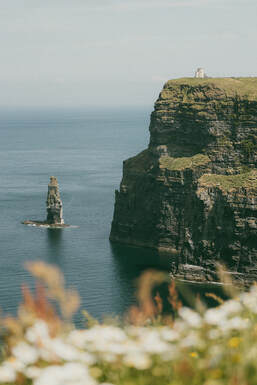Welcome!
9th grade Humanities, Civilizations and Cultures, explores questions regarding the individual's relationship with civilization, society, and government. As a humanities course, this class focuses on integrating language arts skills, historical thinking skills, and skills and perspectives found in other humanities and social science disciplines. Through a variety of genres, both fiction and non-fiction, students participate in thematic projects related to local and global contemporary issues. This thematic, project based, exploration continues through coverage of crucial topics in ancient through early modern (18th century) history. Students examine these content areas through various humanities and social science discipline perspectives including history, sociology, psychology and philosophy. Students completing this course will interact with a variety of perspectives that help them interpret and understand the complex relationship between society and the individual.
|
Through the humanities we reflect on the fundamental question: What does it mean to be human? The humanities offer clues but never a complete answer. They reveal how people have tried to make moral, spiritual, and intellectual sense of a world in which irrationality, despair, loneliness, and death are as conspicuous as birth, friendship, hope, and reason.
|
Projects
Socialization and IdentityEssential Questions:
|
Fall Semester:
Have you ever thought about how everything we know and believe has been formed by our interactions with other people? What we wear, the careers we choose, and the people we spend time with, how we treat each other, the language we use, our core values, and just about everything else has been learned from others. So how much personal choice really goes in to shaping our identities? In this project, we will explore the concept of identity through the lens of Sociology. Wikipedia defines sociology as “the scientific study of society, patterns of social relationships, social interaction, and culture.” We will study how human beings are socialized into their culture through a variety of social forces that influence the people we become and how this interacts with our personal freedom to create our own identities. We will also look at how socialization can reinforce harmful cycles of thinking and behavior and how we, as individuals, can liberate ourselves from them. The project will culminate in the creation of individual identity masks and reflective essays that illuminate our take-aways from our sociological inquiry. |
What is the significance of satire?Essential Questions:
|
Spring Semester Part 1:
What makes something funny? Humor is multifaceted and subjective; a joke that makes one person laugh might offend another. Humor can unite people, alleviate stress, diffuse tension, create divisions, persuade an audience, and point out societal inequities. Humor invites creativity and asks us to read context clues to learn more about ourselves and the world around us. It can be complex and sometimes messy, particularly when it asks us to think critically about a moral issue. In this project, we will explore current events through the lens of satire. We will dive into philosophical questions about what makes something funny, and what responsibilities, if any, fall on content creators and consumers. We will practice fine-tuning our analysis of others’ work and refine our own writing style to communicate opinions through humor. We will explore the topics that are important to us and uncover how our own leanings affect our interpretations. |
Culture Through Mythology and StorytellingEssential Questions:
Enduring Understanding: Storytelling both preserves and shapes culture; serving as a powerful medium to bridge cultural gaps by fostering understanding, empathy, and connections between different communities. |
Spring Semester Part 2:
By the end of this project each one of us will be storytellers and historians in order to carry culture throughout time. Together we are embarking on a journey to understand cultures through their myths and stories. This will require us all to become historians, seeking to uncover and more deeply understand cultures around the world. Part of our goal in this project is also to question the stories that are told for how they might influence perceptions about a culture. We will be researching oral storytelling, mythologies, and the preservation of culture throughout this project. A large portion of the work will be completed with a group to give you the opportunity to have a wider wealth of knowledge and to practice building important skills of collaboration and communication. This group will include participation in a book club and the creation of a mythological retelling through performance using shadow puppets. |
Why does this matter?
Our relationship to story says a lot about who we are and the kinds of stories we choose to tell. What we consider to be a “good” story is often a result of our personality, culture, age, gender, race, experience, and a variety of other traits. There are also subtle, often unrecognized factors that affect which stories we consume and how we evaluate them, such as advertising and social factors like recommendations from friends. Becoming aware of the types of stories we currently consume enables us to recognize personal tastes and find biases that might later affect their decisions about which stories we choose to tell and which people and information is included in our histories.
Our relationship to story says a lot about who we are and the kinds of stories we choose to tell. What we consider to be a “good” story is often a result of our personality, culture, age, gender, race, experience, and a variety of other traits. There are also subtle, often unrecognized factors that affect which stories we consume and how we evaluate them, such as advertising and social factors like recommendations from friends. Becoming aware of the types of stories we currently consume enables us to recognize personal tastes and find biases that might later affect their decisions about which stories we choose to tell and which people and information is included in our histories.

